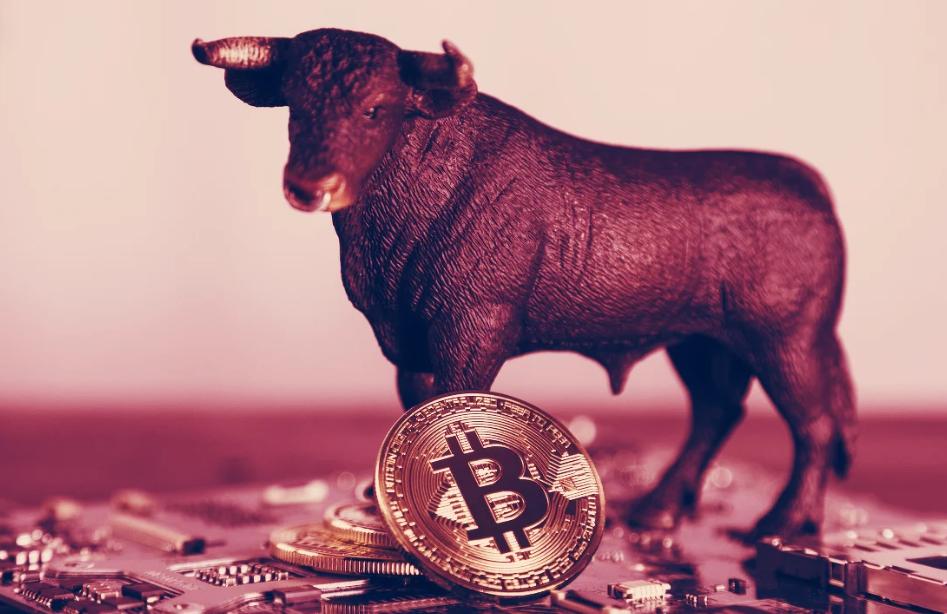What do Bitcoin and the American Dream have in common?
Original Title: “What Bitcoin and the American Dream Have in Common”
Author: George Kaloudis
Translation: BitpushNews Mary Liu
To describe America in the words of poet Walt Whitman: "I am large, I contain multitudes."
What a cliché: the land of the free, the home of the brave, the city upon a hill.
Times are changing, and this country (and the people that make it up) has changed quite a bit, making these phrases sound somewhat clichéd with a hint of irony. Just like the motto on the Great Seal of the United States, which has shifted from "E Pluribus Unum" (Out of Many, One) to the blunt and perplexing "In God We Trust."

At least one phrase that hasn’t changed is the American Dream. It tells people that anyone can achieve success through sacrifice, talent, hard work, and perseverance, rather than merely relying on luck.
However, the American Dream means different things to different people. As a first-generation Greek-American, for me, the American Dream means utilizing the resources at my disposal, as my grandparents made sacrifices to bring their children away from home to become "immigrants of the first generation."
Whose America is the so-called American Dream, and whose dream is it?
Is it the American Dream for those who immigrated from England ten generations ago?
Is it the same interpretation of the American Dream for those who immigrated from Ireland five generations ago or for those whose ancestors arrived on slave ships?
Perhaps not.
But this ambiguity is not a problem; many important ideas carry such ambiguity: democracy is one example. Just because there is no widespread, universal consensus on the definition of an idea does not mean it lacks significance.
These ideas contain some fundamental principles, and despite sounding illogical, Bitcoin and the American Dream are intertwined in this way.
The "Cliché" of Bitcoin
Some people say: Yes, I know Bitcoin!
Common responses include: Bitcoin solves the problem of XXX, Bitcoin is synonymous with the hope of XXX, you wouldn’t understand, watching the numbers go up is fun, even if you stay poor.
Comparing Bitcoin to the American Dream may seem somewhat clichéd, but from my perspective, their commonalities are evident.
On the surface, Bitcoin and the American Dream complement each other. Achieving success through "hard work"? That’s exactly how Bitcoin mining operates: the more work you put in, the greater the rewards you receive.
We can pose more questions.
Is Bitcoin peer-to-peer electronic cash? Is Bitcoin digital gold? Is Bitcoin a store of value? Can Bitcoin facilitate a clean energy transition? Will Bitcoin use up all our water? Will the Bitcoin protocol lead to more ransomware? Can Bitcoin empower individuals under oppressive regimes? Will Bitcoin undermine the Federal Reserve? Can Bitcoin make you bankrupt? Can Bitcoin make you rich? Is Bitcoin an anti-inflation currency? Is Bitcoin a Ponzi scheme?
The answers to these questions depend on whom you ask. Thus, Bitcoin and the American Dream are more similar than they appear on the surface.
Bitcoin means something different to me as a U.S. citizen with a fully functional bank account, where I can use any financial product I can think of and have relatively stable local currency.
But for Afghan woman Roya Mahboob, Bitcoin means something different; she uses Bitcoin (and other technologies) to help Afghan girls overcome gender inequality and gain education.
For Argentinians and Venezuelans facing hyperinflation, Bitcoin also holds a different significance.
All these meanings of Bitcoin are valid. Bitcoin "contains multitudes"; it is accepted by a wide range of users. Allowing these users to transact without permission is the spirit of Bitcoin as a peer-to-peer electronic cash system.
Bitcoin enthusiasts agree that Bitcoin can have many meanings, just as Americans agree that the American Dream (and America) can have many meanings.
One thing is certain: just as Americans are united by the American Dream, the spirit of Bitcoin, which is freedom of transaction, will unite Bitcoin enthusiasts.
The Cynical Side…
I have deliberately avoided the questions above because they are currently the most pressing issues for both America and Bitcoin.
Is America controlled by "capital" on Wall Street? Is Bitcoin?
George Carlin famously said in a stand-up routine: "It’s called the American Dream because you have to be asleep to believe it."

In his view, this country has long been exploited by "capital." To some extent, I share this cynicism. Consumerism and dollar hegemony embarrass me as an American.
The father of Gonzo journalism, Hunter S. Thompson, expressed similar sentiments in his famous work, "Fear and Loathing in Las Vegas: A Savage Journey to the Heart of the American Dream."
The title itself hints at his argument: Las Vegas, as a center of gambling and entertainment, serves as a satire of American excess and consumerism, both of which (along with the drugs prominently featured in the book) have the potential to tarnish America’s reputation.
As for Bitcoin, currently, major financial institutions like BlackRock are peddling Bitcoin in a "institutionally polished" form through U.S. spot ETFs.
The idea and asset of Bitcoin were born from the ashes of the Great Financial Crisis, a rebellion against the Icarian behavior of financiers addicted to leverage and synthetic derivatives that caused the crisis, and now these institutions are promoting the purchase of Bitcoin. Has Bitcoin been co-opted by capital interests?
Perhaps, at least in part.
Nonetheless, I believe one of the best parts of being an American is the ability to openly criticize America, and one of the best parts of being a Bitcoin user is that accepting criticism leads to progress.
Finally, happy birthday to America, 248 years old!













